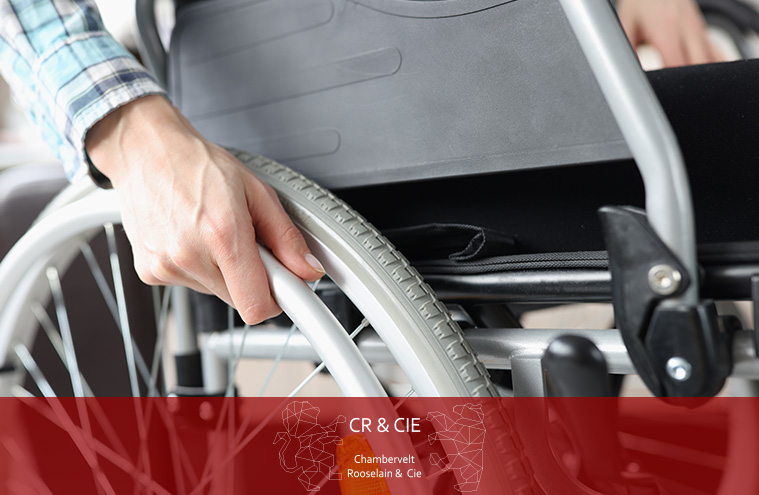

The German healthcare system is considered one of the best in the world: as a citizen in Germany, you enjoy excellent medical care as well as financial coverage in case of sick leave and nursing care. Executives and professionals from foreign companies working in Germany benefit from expatriate health insurance in Germany. Everything you need to know about the topic is presented here.
A longer stay abroad has become part of everyday life for many people today - whether for a work & travel year, as a temporary employee in Germany or even as a visiting scientist. If you are a foreigner working in Germany for a longer period of time, it is important that you have reliable insurance coverage. This is the only way to ensure that you will get the medical treatment you need in case of an emergency - without having to pay expensive costs out of your own pocket.
Both for foreign expats who come to Germany for a longer period of time and for German expats abroad, there are special tariffs offered by the insurance companies. The scope of benefits can be individually adjusted for many tariffs.
The costs for medical treatment, a stay in hospital or even for medication are paid by the health insurance companies in Germany. If you move permanently to Germany, you can either take out health insurance through your employer or choose your own insurance. You can choose between public and private health insurance. If something happens to you as an expat in Germany, you will receive medical care in any case. This happens in case of emergency even if you do not have insurance status. You can still pay for the treatment afterwards - but this will be out of your own pocket if you do not have health insurance for expats. For this reason, the law requires that foreigners who live and work permanently in Germany have health insurance. The insurance also saves you from high medical bills.
For expats with a temporary stay of two or three years, on the other hand, a temporary expat insurance is the right thing, which works like a long-term health insurance.
If you take up a job in Germany, you are usually also subject to compulsory social insurance. This means that you, as an employee, pay contributions from your gross salary to pension, nursing care and accident insurance as well as to unemployment and health insurance. As a rule, all domestic and foreign employees are subject to social insurance and must pay the corresponding contributions.
However, there are exceptions: Foreign employees are not covered by German social security law if they are
Expatriates who do not have their permanent residence in Germany, but who stay here for several years, can take out special health insurance for expatriates. This is usually valid for up to five years.
If you have a temporary residence permit in Germany, you must present proof of valid health insurance both when entering the country and when extending your visa. The following criteria are decisive:
Almost 90 percent of citizens in Germany have statutory health insurance. Both people from other EU countries and non-EU citizens from third countries can take out statutory health insurance in Germany at any time. Trainees, skilled workers or even trainees who are employed by companies as expats in Germany and earn no more than 62,550 euros per year are covered by the public health system. Spouses, cohabitants and children up to and including the age of 25 can in some cases be covered by family insurance, provided their income is less than 450 euros per month.
If you would like to take out statutory health insurance as an expat in Germany, there are almost 100 health insurance companies available to you. The statutory health insurance offers you all medically necessary benefits in case of illness. This includes both outpatient treatment by statutory health insurance physicians as well as hospital stays and treatment by a dentist.
If you are sick for more than six weeks, the health insurance fund will step in after the sixth week and take over your salary payment: You will then still receive 70 percent of your previous salary. Within 36 months, you can claim this payment for a maximum of 78 weeks.
If you would like to take out statutory health insurance, simply contact the health insurance company of your choice. They will then issue you with a health insurance card, which you can use to be treated by a panel doctor of your choice.
If you would like to take out private health insurance as an expat in Germany, you can choose from over 40 private health insurance companies. These offer you different ranges of benefits, which is why we recommend a detailed comparison in advance.
If you have private health insurance, you will enjoy higher quality and more comprehensive medical care. This is particularly advantageous for you as an expat in Germany: For example, you can request a doctor who speaks English, Spanish or another language in which you can communicate better.
Another advantage is that you can claim up to 80 percent of the insurance costs as a privately insured person against tax.
However, not every expat in Germany is eligible for private insurance: If your annual salary is less than 62,550 euros, you can only take out statutory insurance.
As an expat in Germany, you can become a member of a PKV under the following conditions:
Especially as a young expat with no special medical history and a good income, you will benefit from switching to a private health insurance. You are usually insured for at least 18 months and can change the policy with a notice period of two months before the end of the first 18 months or in case of a premium increase.
The calculation of the contribution amount in the statutory health insurance is always based on your income. With private health insurance, this is different: Here, your medical history, your age and other factors play a role in the premium calculation.
If you want to take out private health insurance as an expat in Germany, you first pay a doctor's bill out of your own pocket and then submit the bill to the health insurance company. After a few weeks, the amount will be reimbursed. This means that you have to pay in advance, but in contrast to the statutory health insurance, you will be reimbursed 100 percent of the costs.




ask the experts
Get to know us